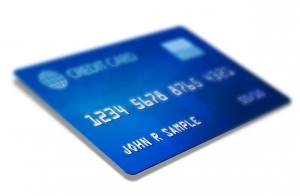 It happens all the time, people sign on the dotted line creating joint accounts. Credit cards, bank accounts, car leases, etc. Many of us do it without even thinking. What we may not understand is just how important that decision is to our financial future and how hard a decision it can be to unwind. The following are some important things to know before opening a joint account.
It happens all the time, people sign on the dotted line creating joint accounts. Credit cards, bank accounts, car leases, etc. Many of us do it without even thinking. What we may not understand is just how important that decision is to our financial future and how hard a decision it can be to unwind. The following are some important things to know before opening a joint account.
First, joint credit can mean many different things. The first kind of common account is a one that is truly split. This means that you are both partners on the account and fully liable for the loan. It’s important to realize that if your partner flakes out you are liable for 100% of the debt, not just 50%.
Another variety is an account where you are listed as an authorized user. In such accounts you are allowed to use the card but have little or no responsibility for ever repaying the debt. If the debtor defaults it is possible that some lenders will attempt to collect from you, especially for the purchases you made.
A final variety is a co-signer situation. In these cases you are signing on to be responsible for the entire amount of the debt even though the credit has been issued in another person’s name and you are not permitted to use it. If the borrower messes up, this bad behavior can be reflected on your credit history as you signed up to be on the hook.
Second, ending a relationship could potentially lower your credit score by reducing your income level. If your income drops and creditors pull back your credit limits there could be a real impact to your credit situation. One way to avoid this is to keep using some of your individual accounts while in a relationships.
Third, divorce courts are not able to assign away joint credit accounts. No matter what a judge says or how your final financial settlement is structured, both spouses are still 100 percent responsible for every joint debt. The agreement is between you and the lender and courts do not have the power to alter that. It’s because of this that many divorce attorneys recommend you pay off and close joint accounts prior to the final divorce filing. In some cases lenders will allow you to remove one spouse from an account or let you reapply for the credit on your own. In both cases though, the lender is in charge, not the divorce court.
If you find yourself facing the prospect of divorce in Charlotte, it is good to contact the experienced family law attorney in Charlotte, North Carolina at Arnold & Smith, PLLC who can help guide you through the often difficult process.
See Our Related Blog Posts:
 Charlotte Divorce Lawyer Blog
Charlotte Divorce Lawyer Blog

